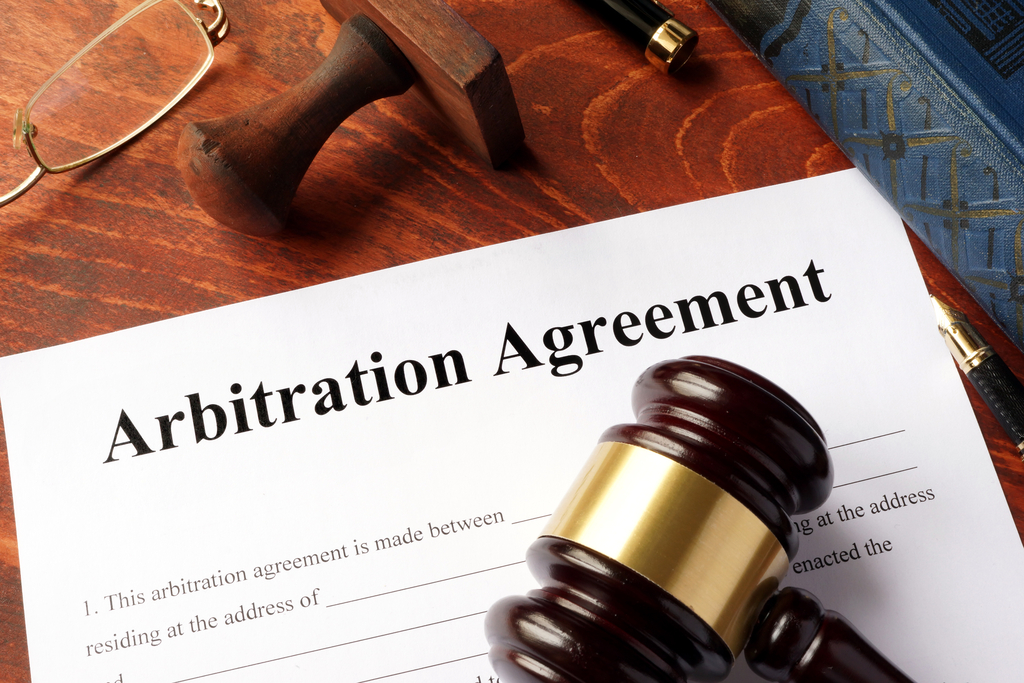This post discusses the significance of the arbitration agreement and how a beit din acquires jurisdiction to decide a case. Jewish law requires parties to settle their dispute in beit din. 1 Generally, a given beit din has jurisdiction under Jewish law to hear a case if one of three conditions is met.
The first is if the beit din is appointed or recognized as the established beit din of the city (dayanim kevu’im be-‘ir). 2 Rav Moshe Feinstein held that only a beit din formally appointed by a community and authorized to preside over its constituents has the status of dayanim kevu’im. 3
The second is if the respondent refuses to adjudicate in beit din. 4 The underlying idea is that the respondent has a right to refuse the claimant’s proposed forum, 5 but he cannot escape beit din adjudication altogether. Should he attempt to do so, any competent beit din is theoretically granted jurisdiction to decide his case. 6
The third and most common is if both parties willingly submit their dispute to a beit din and explicitly grant that beit din jurisdiction to decide their case. 7 This is typically done through signing an arbitration agreement—what the halakha refers to as a shtar beirurin 8—or through executing a kinyan sudar where the parties raise a handkerchief acknowledging their acceptance of the beit din’s authority. 9
In addition to its Jewish law significance, the arbitration agreement also grants the beit din jurisdiction under secular law. With a signed arbitration agreement, the decisions of a beit din are binding and enforceable in court. As a general policy, the Beth Din of America will not hear a case unless the parties have entered into an arbitration agreement designating the Beth Din of America as their arbitrator. 10
The arbitration agreement thus performs double duty. It serves as the Jewish law mechanism through which the parties grant the beit din authority to decide their case. And it also serves as the secular law mechanism through which the beit din’s decisions are recognized and enforced by the state.
A final, crucial feature of the arbitration agreement is that it sets the ground rules for how the beit din can resolve the dispute. For example, the Beth Din of America’s standard arbitration agreement incorporates its Rules and Procedures, allows the dayanim to decide a case according to din (Jewish law) and pshara kerovah le-din (court ordered settlement in accordance with Jewish law), and empowers the Beth Din to issue partial and interim orders. 11
For a detailed discussion of the importance of the arbitration agreement, the role of the kinyan sudar, and how a beit din acquires jurisdiction to decide a case, see Rabbi Yona Reiss’s article, “Jewish Law, Civil Procedure: A Comparative Study,” Journal of the Beth Din of America 1.
- Shulchan Arukh Choshen Mishpat 26. See also Rabbi Yaakov Feit, “The Prohibition Against Going to Secular Courts” Journal of the Beth Din of America 1.
- Shulchan Arukh Choshen Mishpat 3:1, 8:1, 22:1.
- Iggerot Moshe Choshen Mishpat 2:3. On that basis, Rav Moshe held that no beit din in the New York metropolitan area has the status of dayanim kevu’im. See also Chazon Ish, Sanhedrin 15:7.
- Shulchan Arukh Choshen Mishpat 3:1, 13:1.
- Shulchan Arukh Choshen Mishpat 3:1, 13:1. See also 14:1.
- Though in practice the Beth Din of America and other batei din do not assert this jurisdiction.
- Shulchan Arukh Choshen Mishpat 13:1-2 and 22:1.
- Talmud Bavli Bava Mezia 20a and Rashi s.v. zeh, Mishnah Mo’ed Katan 3:3 and Bartenura s.v. shtarei.
- See Shulchan Arukh Choshen Mishpat 12:7, 13:2, 22:1.
- See Midrash Tanchuma’s assertion that a judge is useless if his rulings are unenforceable. Parshat Shoftim, 3, s.v. shoftim ve-shotrim.
- Jewish law generally allows parties to impose any terms and conditions that they mutually agree to. See Talmud Bavli Bava Mezia 94a.

